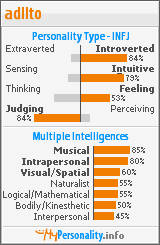 You know perhaps that I love to take things apart literally and conceptually. I've never done that to a cello and never will; though I am building a cello out of bits from other places, not necessarily originally a cello. It's the reverse action where I put things together to see if they will work together as a cello.
You know perhaps that I love to take things apart literally and conceptually. I've never done that to a cello and never will; though I am building a cello out of bits from other places, not necessarily originally a cello. It's the reverse action where I put things together to see if they will work together as a cello.
Often something that doesn't work requires a minor repair. I've assembled a family of formerly broken folding wooden chairs. Some have come from the garbage thrown away, though a few also came from garage sales sold cheaply because they wobble. One came with a broken foot and I had to put a metal pin to repair it. Others I have taken apart and re-glued the complete frame. The most ambitious projects have been folding pews left outside so the wooden veneer was cracked, warped and broken. I had to split, steam and re-bend the wood before applying glue to the hot pliable wood and clamping the peieces together. With my family of orphaned chairs, oddly I can still tell you where each came from.
I love to take things apart to see if I can make them work again. My microwave's door latch stopped locking - I took the door apart and deduced how it worked and what had broken and figured out a fix. I have taken apart all my broken tape answer machines though my successful repairs are zero for four so far.
Today I had to write a reflection on what elements have affected my adult learning. I think being diagnosed as short-sighted/near-sighted quite late has made me a listener i.e. an audio learner rather than visual learner, and because I never learned to read through reading aloud, I became a speed reader lacking the habit of subvocalisation. Probably the greatest effect of all this has been that writing became a speaking activity for me and as I write I am discovering what I think because I am out of synch with the action of writing and conscious reflection. Writing is literally talking to myself or having a discussion with myself. The oddest effect is re-reading what I wrote after a long gap. Both academically and in my journals reviewing creates a new consciousness because the moment of thought has been lost.
I believe this is something akin to Paul Riceour's second naivete, the last of a 3 stage movement. The "first naivete" signifies the human's embededness in the symbolic foundations of their world and for me this is the act of writing. "Critical distance" signifies their use of interpretive structures to create distance from the symbol systems. Here this is the act of hearing my writing and taking it in as a conversation. The action of reading what I have written and re-reading becomes an act of interpretation and taking apart the ideas which is the "Second naivete". It signifies the human interpretive stance, informed by the use of critical models, open to a deeper understanding of symbols and meaning.
Friday, September 21, 2007
Taking things apart
at
9:05 AM
![]()
Labels: discernment, what's the question?, writing









